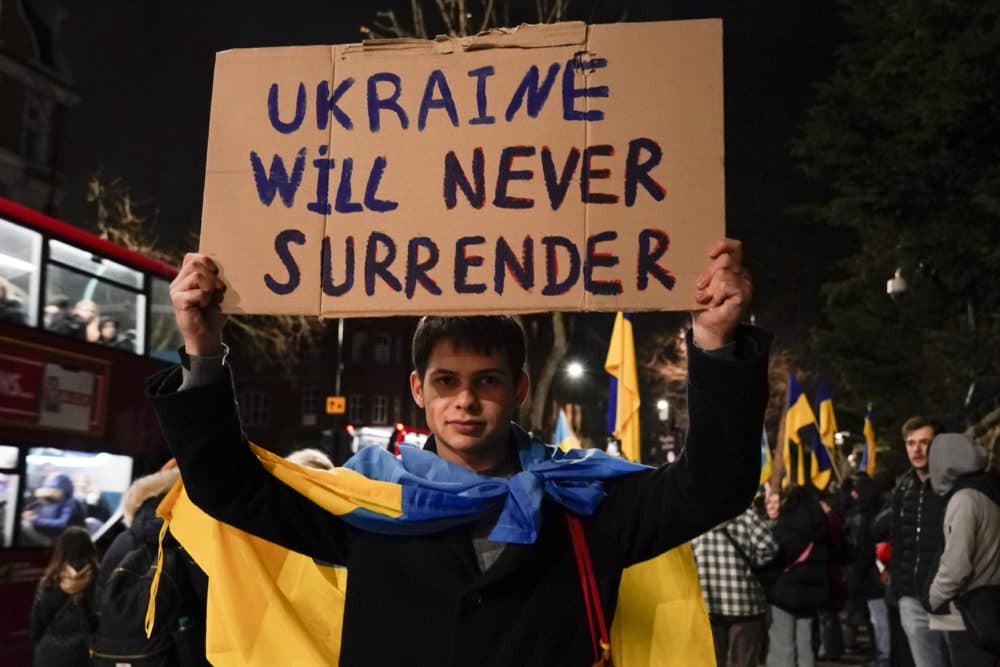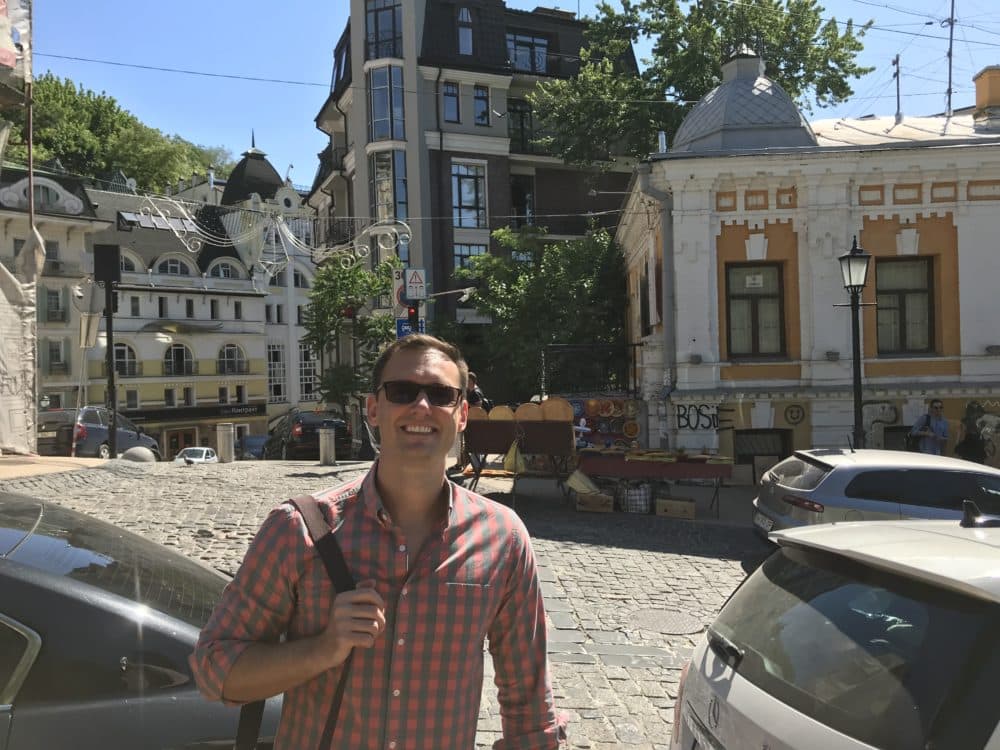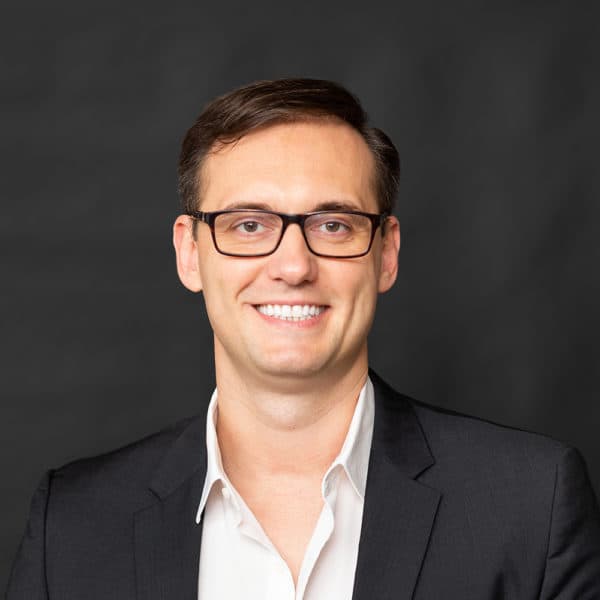Advertisement
Commentary
The Ukrainian dream, and how Russian aggression helped solidify it

“What could be the essence of all of this, O master?” asks Haba Habinsky, the hero of Volodymyr Rafeyenko’s artful novel "Mondegreen: Songs about Death and Love."
“And what is the Ukrainian essence, if you compare it with, say, the Russian one?” he goes on to ask. “Of course, the Ukrainian essence, if it is our national one, should be different from the essential essence, so to say, of the enemy? Right? Or are there certain philosophical coordinates where the national disappears and the essentially human sets out upon its difficult and senseless path?”
As a literary scholar, I have studied the ways in which literature manages to effectively communicate meaning that is hard to grasp otherwise. With friends, relatives, and colleagues remaining in Ukraine, I worry about the worst-case scenario, where so many innocent lives can be lost, after 14,000 Ukrainian citizens of all backgrounds have already perished.
Like many Ukrainians since the onset of Russian aggression, Rafeyenko’s protagonist — a refugee from the city of Donetsk, which was taken over back in 2014 by Russian mercenaries and local Russia-backed separatists — suffers from a severe PTSD that makes him question reality around him and see things that may not be there. Yet we as a people are in the unique position today to clearly see that Putin is set on annihilating us, and we do what we can to share that first-hand experience with the rest of the world. After initial disorientation and denial — not unlike that of Habinsky’s — many in the U.S. and the E.U. appear to finally see Russian aggression against Ukraine for what it is, and its “essential essence” has slowly crystallized. The early calls to offer concessions to Vladimir Putin and to uncritically separate matters of business and security when dealing with Russia gave way to the realization that nothing will satisfy Putin but a complete surrender.
For Putin and his authoritarian regime, the will of my family and friends, and their right for self-determination as a people, do not exist...
For Putin and his authoritarian regime, the will of my family and friends, and their right for self-determination as a people, do not exist; consequently, it is for him to decide which nations deserve statehood and which should obediently relinquish their desire for self-rule and independence. For too long, Putin’s own power has not depended on the will of Russian people and their well-being in a country where the Kremlin enjoys almost complete control over the media and where opposition and dissent has been all but exterminated in the most ruthless ways. Ukraine — whose dismembering and co-option by Russia has been Putin’s ideé fixe ever since the Orange Revolution in 2004 — is but a start in his bullish strategy to force this political system onto nations that have had the bad luck of finding themselves in Russia’s geographic proximity.
Ukrainians who fled parts of Donbas as Russia launched a separatist war there after annexing Ukraine’s Crimea know too well what Russia has to offer to those it comes to “liberate.” So far, the sliver of Ukrainian territory controlled by Russian operatives and their local henchmen has seen some of the worst crimes against humanity in Europe’s recent history. Stanislav Aseyev describes them in his "In Isolation: Dispatches from Occupied Donbas": boundless corruption of the warlords ruling their fiefs as they see fit and frequently settling disputes among themselves by shoot-outs and assassinations; kidnapping of innocent residents; illegal imprisonment in modern-day camps; physical and psychological torture and persecution in the basement prisons of the pseudo-republics; and executions without trial in broad daylight.

The situation is much the same in Russian-occupied Crimea where civil rights activists and representatives of the Crimean Tatars — the only people indigenous to the stunningly beautiful peninsula at the Black Sea — are routinely sentenced to jail for “terrorism,” beaten, tortured, kidnapped, and murdered by Russian security forces. Of course, this mirrors the situation with human rights in Russia itself, though in a much more heightened way given the precarious legal status of the quasi-republics and the annexed Crimea. In Russia proper, such horrendous things happen almost daily in Chechnya that Putin bestowed on Ramzan Kadyrov and his criminal gang in exchange for their absolute loyalty.
This is not what Ukrainians want for themselves and their children. Unlike Russia, we have in Ukraine a vibrant and resilient civil society that, at regular intervals, stubbornly reminds its elected officials about the source of their power — the Ukrainian people. We have chosen democracy and the rule of law over and over again; we have chosen human life and a chance at self-fulfillment as the highest values in our society. Thus the “essential essence” of Russian aggression for us is about attacking this choice and our inalienable right to exist in a country where citizens can enjoy rights and freedoms that Russian citizens have not known in a long time.
While it feels surreal to see my relatives and friends in Ukraine learn how to shoot in order to protect their families and homes ... their creativity, calm resolve, and determination astound me.
While it feels surreal to see my relatives and friends in Ukraine learn how to shoot in order to protect their families and homes, and how to provide crucial medical aid on the battlefield, their creativity, calm resolve, and determination astound me. Just like the previously Russophone Haba Habinsky — who willfully adopts the Ukrainian language in Rafeyenko’s novel out of protest against what Russia has done to him and his homeland, and to take back at least some agency — thousands of ordinary Russian-speaking Ukrainians have taken to social media in recent days, openly taunting Putin and declaring that they will no longer speak any Russian, so as to take the last rhetorical excuse from Russia to come and “liberate” them.
How can Putin ever comprehend our people, and how can he hope to conquer and enslave us? I don’t think he has a chance, especially if the rest of the world firmly stands with Ukraine today.
About the author: Oleh Kotsyuba was born and raised in Ukraine. He earned a PhD in Slavic studies from Harvard University, studying the strategies Ukrainian and Russian writers and poets have employed in dealing with oppressive regimes.
